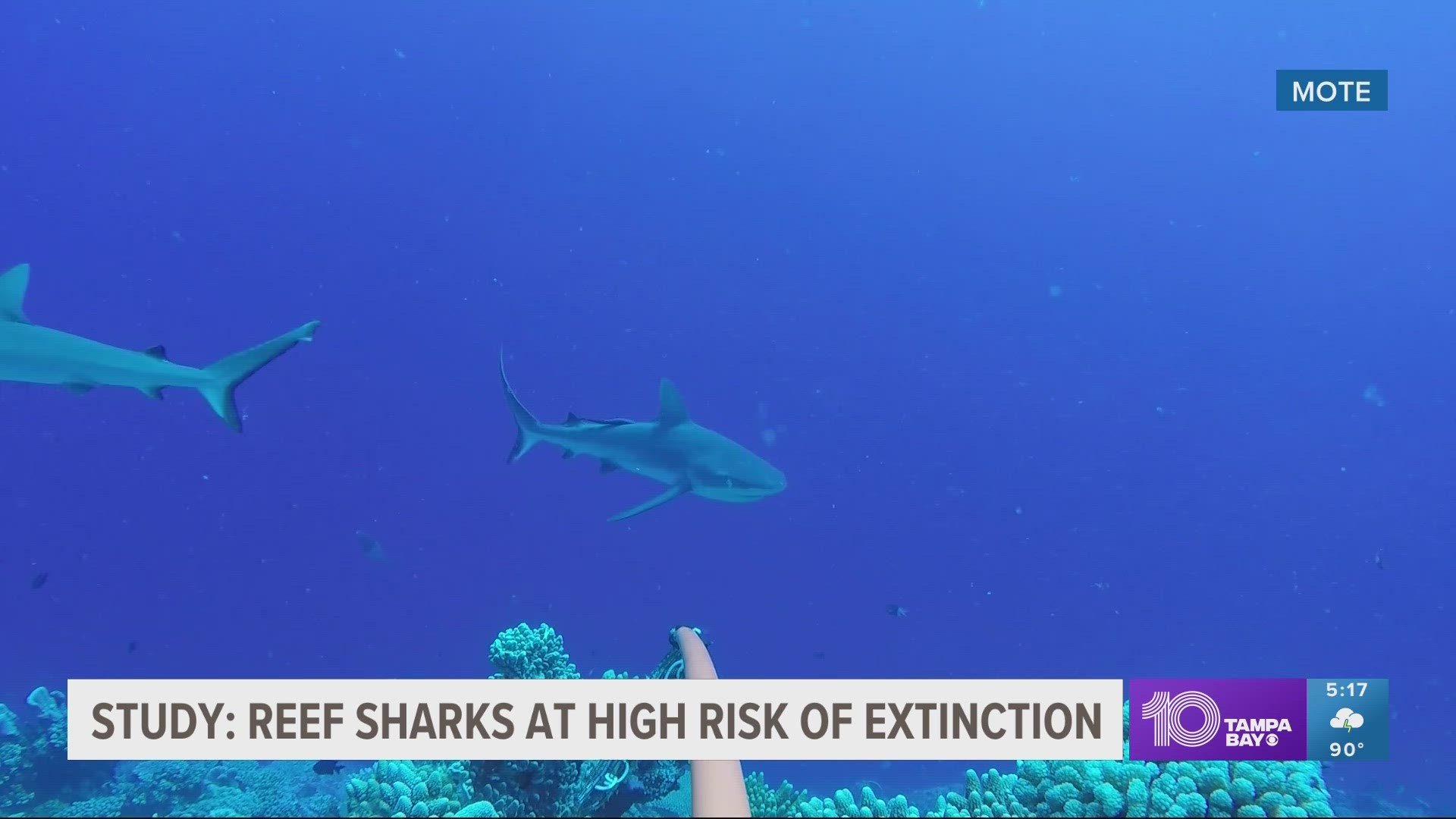TAMPA, Fla. — A new study published Friday explains overfishing is driving reef sharks toward extinction.
Scientists of Global FinPrint, a five-year international study, found the five main shark species that live on coral reefs – grey reef, blacktip reef, whitetip reef, nurse and Caribbean reef sharks – declined globally by an average of 63 percent.
“These are some of the best estimates of population decline of widespread shark species because of the very large number of reefs and countries sampled,” Colin Simpfendorfer, lead author of the study and adjunct professor of Marine and Aquaculture Science at James Cook University in Australia, explains in a statement. “This tells us the problem for sharks on coral reefs is far worse and more widespread than anyone thought.”
After 22,000 hours of video footage from baited underwater video stations across 391 reefs in 67 nations and territories, results show widespread overfishing is the main culprit driving reef sharks toward becoming extinct.
“While overfishing and poor governance is associated with the absence of these species, they are still common in Marine Protected Areas (MPAs) and places where shark fishing was banned or highly regulated,” Demian Chapman, lead scientist of Global FinPrint and director of the Sharks and Rays Conservation Program at Mote Marine Laboratory, explained in a statement. “Reef sharks can be important for human livelihoods through dive tourism and if very fished carefully.
"An investment in reef shark conservation can therefore be good for people, too."
Scientists say sharks and rays are common in coral reef ecosystems. But as reefs become more heavily fished, they start to become stripped of sharks and rays – ultimately leaving the ecosystem dominated by rays.
And why is this bad? The loss of sharks could reportedly have an impact on the overall health and function of coral reefs.
“People need healthy coral reefs,” Mike Heithaus, co-author of the study and executive dean of the College of Arts, Sciences & Education at Florida International University, said in a statement. “We are seeing that when sharks disappear, that causes other changes in these ecosystems.
"Keeping shark populations healthy, or rebuilding them, is important for maintaining their roles for healthy reefs.”

